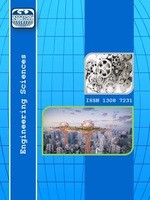
Engineering Sciences
Yazarlar: Yusuf ULU, Fırat PARLAK
Konular:Mühendislik
Anahtar Kelimeler:DSP,Speed Measurement,Motion Control,Incremental Encoder,Permanent Magnet Synchronous Machine (PMSM)
Özet: In motion control drives, speed measurement with high accuracy is an important issue and has great influence on the motor performance. In this paper, speed measurement techniques' affects for motion control in permanent magnet synchronous machine (PMSM) with low resolution incremental encoder are discussed. Conventional speed measurement techniques such as measuring frequency method (M-method, measuring period method (T-method) and measuring both frequency and period method (M/T-method) are introduced. The simulation results are obtained in MATLAB/Simulink and the experimental results are presented based on TMS320x28xxx. Simulation and experimental comparative analysis of the various methods results show that M-method is suitable for high speed measurement, T-method is suitable for low speed measurement and M/T method is not related with speed and it works in both low speed and high speed. So the M/T method is better than the M-method and T-method and the speed measurement error is less than other methods with a high precision in a wide speed range.